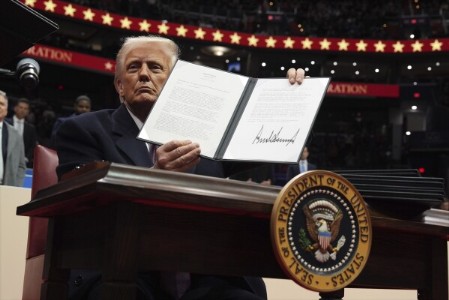Unknown Gunmen Strike again in PAK, Islamic Preacher affiliated to Jaish-e-Mohammed Killed
Total Views |
In recent times, Pakistan has been plagued by a string of targeted killings, resulting in the deaths of individuals with ties to terrorist organizations.

These incidents have caused deep concerns about the country's internal power struggles and the ever-changing security landscape. The most recent attack took place in Peshawar, Khyber Pakhtunkhwa, where Maulana Sher Bahadur, a radical preacher and well-known supporter of Jaish-e-Mohammed, was brutally murdered by unidentified assailants. The news of this heinous act has stunned the region, leaving many to ponder over the possible motives behind it.
A harrowing video of Maulana Sher Bahadur's lifeless body has been circulating on the internet, capturing the disturbing aftermath of the attack. The footage shows local authorities handling his body as reports reveal that he was shot at close range, resulting in immediate death.
Pakistan- Maulana Sher Bahadur, a radical preacher and Jaish supporter has been killed by 'Unknown' today at Khyber Pakhtunkhwa in Peshawar.https://t.co/4IHhdQ3xHx
— Megh Updates 🚨™ (@MeghUpdates) December 3, 2023
The assassination of Maulana Sher Bahadur is just one instance in a series of deliberate killings occurring in Pakistan, mainly aimed at people linked to militant and terrorist organizations. Such attacks have instilled a sense of apprehension and confusion, particularly among those who are perceived to hold radical beliefs.
The increasing number of targeted killings has also sparked doubts about the efficacy of Pakistan's anti-terrorism measures. Despite significant progress in eradicating militant groups, these incidents serve as a reminder of the persistent obstacles and the importance of staying vigilant.
The reasons for these killings are still shrouded in mystery, but they appear to stem from a mix of factors - possibly power struggles among militant factions, personal feuds, and a push to eliminate those viewed as threats to regional stability and security.
While the Pakistani government has denounced these acts of violence and promised to hold the culprits accountable, the fact that they continue points to the intricate security landscape in Pakistan and the uphill battle the government must face in enforcing law and order.
Bharati Web






